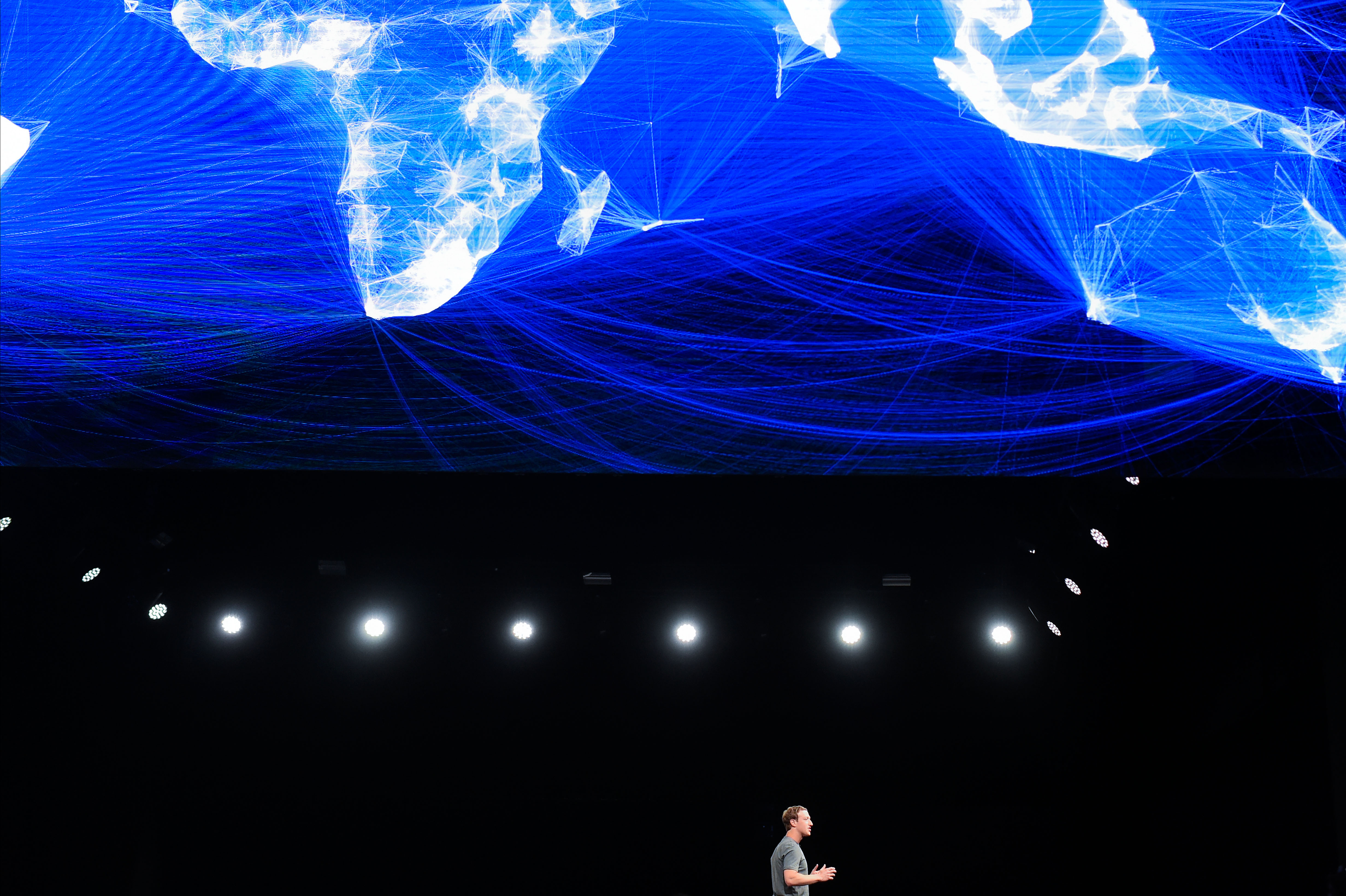Facebook's face-plant
Facebook's commitment to fighting misinformation is far from clear. Let's analyze the social network's stumbles ...

The smartest insight and analysis, from all perspectives, rounded up from around the web:
"Facebook can't get its story straight on fake news," said Alfred Ng and Joan Solsman at CNET. The social media giant hosted a group of tech journalists at its Manhattan offices last week, with the aim of showcasing its efforts to fight misinformation. But the company's commitment to that battle is far from clear. When asked how the platform could claim to be tackling fake news while simultaneously allowing the fringe-right conspiracy site Infowars to operate a page with nearly 1 million followers, Facebook News Feed head John Hegeman replied that Infowars hadn't actually broken Facebook's rules. The company does ban outlets that promote violence and hate speech, he explained, but "just being false" doesn't violate Facebook's standards. Facebook, he added, is a place for different publishers with "different points of view." But Infowars doesn't simply produce "different points of view," said Oliver Darcy at CNN. It deliberately spreads false information: It has suggested that the Sandy Hook massacre was a hoax staged by child actors and that NASA is running a child sex slave colony on Mars. Facebook later clarified that it does down-rank demonstrably false content, so that those posts won't appear at the top of news feeds, but will not interfere with users' "free expression."
"The Infowars flap is a sign of the complicated position Facebook finds itself in," said Eli Rosenberg at The Washington Post. Facebook has tried to curb the spread of "false and malicious information that bloomed on its platform during the 2016 election" by tweaking algorithms and identifying propaganda. But the platform, which bills itself as politically neutral, is afraid to kick out fake-news peddlers and risk "alienating conservative users and compromising its business model." Look at what happened when Facebook videos made by pro-Trump bloggers Diamond and Silk were labeled "unsafe" by the company. Facebook was berated by Fox News and Republicans in Congress; it eventually claimed the label had been applied in error. It's a no-win situation: If Facebook gets tough, it's attacked by critics on the right, and if it doesn't, it gets bombarded by the left.
The Week
Escape your echo chamber. Get the facts behind the news, plus analysis from multiple perspectives.

Sign up for The Week's Free Newsletters
From our morning news briefing to a weekly Good News Newsletter, get the best of The Week delivered directly to your inbox.
From our morning news briefing to a weekly Good News Newsletter, get the best of The Week delivered directly to your inbox.
Facebook is right not to ban Infowars, said Theodore Kupfer at National Review. That would simply make a martyr of its founder and main host, Alex Jones, and "further radicalize his fans." When social media sites boot "marginal but popular users," they risk splintering our shared online ecosystem even further and driving disillusioned users to sites "where gleefully prejudiced or otherwise marginal politics are the norm. This is a scenario we should want to avoid."
For now, Facebook has no incentive to change its "milquetoast method" of dealing with fake news, said Maya Kosoff at Vanity Fair. Because despite a steady stream of negative stories about the platform — that it handed users' private data to advertisers and suspect political consultancies; that it allowed Russian propaganda to run rampant during the 2016 election — business is booming. Facebook notched record profits earlier this year, and its stock price is now at an almost three-year high. The company will continue to enable the "spread of low-truth stories intended to mislead" until doing so hurts "its ability to turn a profit."
A free daily email with the biggest news stories of the day – and the best features from TheWeek.com
-
 How Utah became a media focal point
How Utah became a media focal pointIn Depth From #MomTok to reality TV gems, Utah has emerged as a media powerhouse
-
 ‘The security implications are harder still to dismiss’
‘The security implications are harder still to dismiss’Instant Opinion Opinion, comment and editorials of the day
-
 Sudoku: January 2026
Sudoku: January 2026Puzzles The daily medium sudoku puzzle from The Week
-
 The pros and cons of noncompete agreements
The pros and cons of noncompete agreementsThe Explainer The FTC wants to ban companies from binding their employees with noncompete agreements. Who would this benefit, and who would it hurt?
-
 What experts are saying about the economy's surprise contraction
What experts are saying about the economy's surprise contractionThe Explainer The sharpest opinions on the debate from around the web
-
 The death of cities was greatly exaggerated
The death of cities was greatly exaggeratedThe Explainer Why the pandemic predictions about urban flight were wrong
-
 The housing crisis is here
The housing crisis is hereThe Explainer As the pandemic takes its toll, renters face eviction even as buyers are bidding higher
-
 How to be an ally to marginalized coworkers
How to be an ally to marginalized coworkersThe Explainer Show up for your colleagues by showing that you see them and their struggles
-
 What the stock market knows
What the stock market knowsThe Explainer Publicly traded companies are going to wallop small businesses
-
 Can the government save small businesses?
Can the government save small businesses?The Explainer Many are fighting for a fair share of the coronavirus rescue package
-
 How the oil crash could turn into a much bigger economic shock
How the oil crash could turn into a much bigger economic shockThe Explainer This could be a huge problem for the entire economy